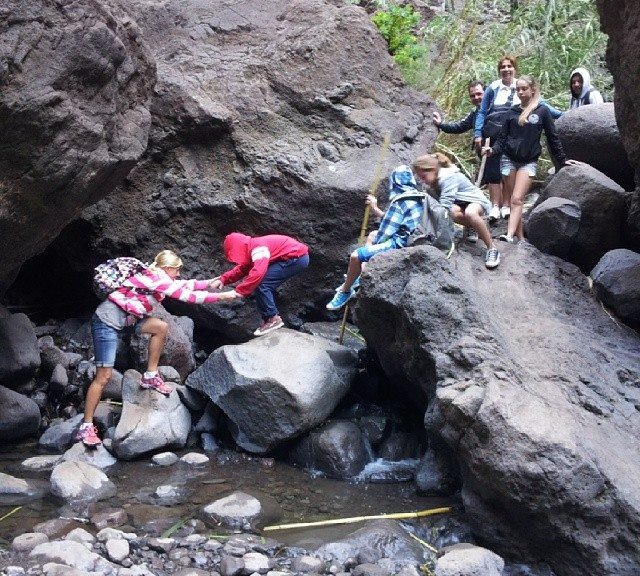
GIVE UNTIL IT HELPS
Here’s a thing from Jay Conrad Levinson’s GUERILLA MARKETING EXCELLENCE: The 50 Golden Rules for Small-Business Success: “Give till it helps.”
It’s a very different take than the more usual “give until it hurts” that Mother Theresa espoused.
Mother Theresa’s thing seems to encourage a degree of selflessness that’s way over the top. Some folks take it to mean that you’re supposed to give and give and give until you’ve nothing left to give….and then you give some more.
With that one, I’m not quite sure what you’re supposed to do when you’re totally depleted and unable any more to take care of your own self, your own dreams, and the responsibilities that are yours.
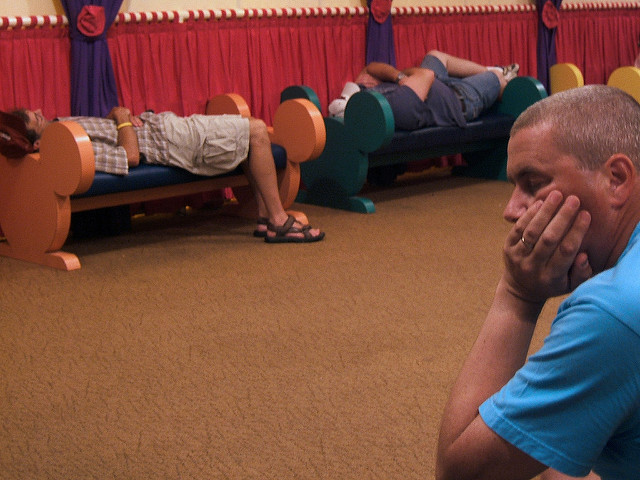
MINDFULNESS AND GIVING
Levinson’s take on the whole giving thing seems, instead, to encourage mindfulness, looking at whether the “help” you’re giving is actually a help to the other person and is not a detriment to yourself.
- Is this help you are giving effective?
- Are you empowering the other person?
- Does the help you are giving encourage the recipient to continue walking their own road?
- Does it help them to build themselves up so they can tackle their own problems?
Very often, you have to watch to make sure that the responses and moves you’re evoking from the other person as a result of the actions you’ve taken are heading in the direction that can allow them to make the best use of the energy (money, time, talent) that you’ve expended on their behalf.
So, what happens if it doesn’t? What if your gift keeps the other person from learning the lessons they need to learn? What if your gift actually diminishes them?
An everyday example of that is the effects of being raised by a so-called “helicopter parent.”
A well-meaning, overprotective parent who does your chores and your homework for you; tries to resolve your every social problem; is your personal rally squad who cheers you on for every little thing you might accomplish and attempts to completely eliminate any sort of contact you might have with frustration of any sort is NOT a help.
If every obstacle is eliminated for you, how are you going to learn how to do your own work-arounds and develop your own strengths to power on through the potholes and hurdles and to fix your own mistakes?
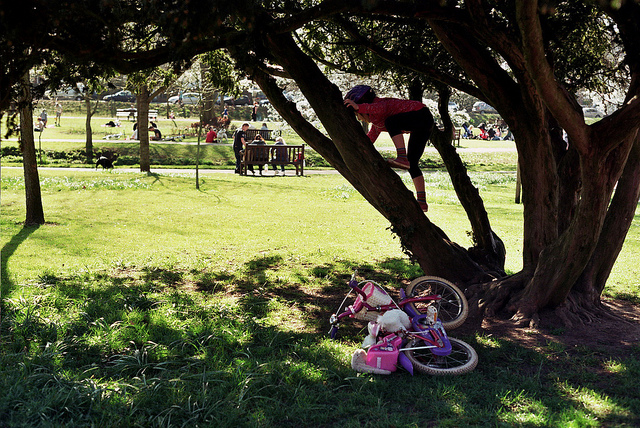
It sends the unfortunate message that you don’t think they can do it without your help. Is that a message you want to send?
AND WHAT ABOUT YOU?
Also, a major question you might want to ponder is this: When you are making this gift, are you using your available resources in a way that adds meaning and mana (inherent power) to your own life?

When we give, we continually test our limits, she says. “The practice of generosity is about creating space. We see our limits and we extend them continuously, which creates a deep expansiveness and spaciousness of mind.”
The late poet Maya Angelou once famously said, “I’ve learned that people will forget what you said, people will forget what you did, but people will never forget how you made them feel.”
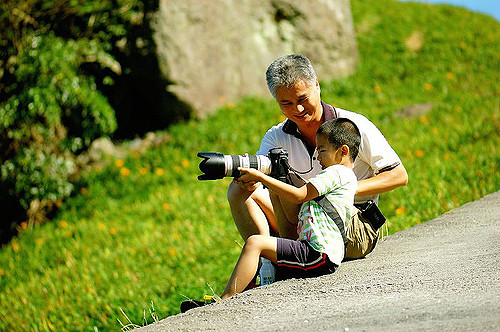
TWO ENDS OF A GIFTING TRANSACTION
It occurs to me that every gift has a giver and a receiver. The gift is a transfer of life-energy from one to another.
Gifting is always a transaction between the one who gives and the one who receives.

- Does the person want your help?
- Is the person ready to accept your help?
- Do you have the skill, the time and the inclination to do what is really needed? Trying to help people when you don’t have the skills or the time or the commitment to a project is likely to do more harm than good.
Jumping into somebody else’s life and messing with their “stuff” does require a lot of heavy thinking beforehand. Be respectful. Be careful. That may be somebody’s heart you’re stepping on.

Sometimes it’s just a matter of pitching in. Some project needs to be completed and you are willing and able to lend a hand.
The goal is clear, everybody agrees on the purpose and the method is fairly obvious. You go.

This YouTube video, “Help That Helps – Giving What Is Really Needed,” was published in 2016 by the Visalia Rescue Mission. It was put together by people who spend their days providing concrete help in many different ways for the homeless in their area.
The major take-away from this one is that there is no one-size-fits-all solution for the bigger, more problematic circumstances humans often face.

The book has a Christian bent. Its goal is to educate missionaries and ministries as well as other helpers who work in poverty- and disaster-stricken areas about how to effectively alleviate poverty for the long-term.
The authors advise that these helpers need to focus on the resources and abilities a community already has rather than focusing on what the community does not have.
The book is an interesting read for anyone who’d like to gain a better understanding of the different facets of helping those in need.
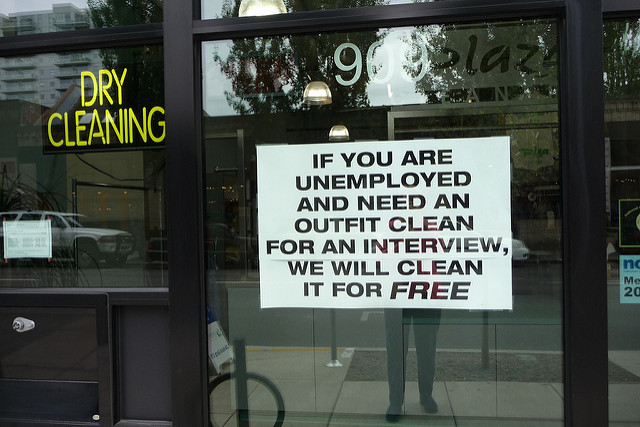
HOW TO TELL WHEN YOU’RE GIVING TOO MUCH
Professor Shawn Meghan Burn’s 2014 article in Psychology Today, “Twelve Signs That You are Giving Too Much,” gives a rundown of the signs that the help you are giving to someone may be dysfunctional and unhealthy.
The good doctor has also written a book, UNHEALTHY HELPING: A Psychological Guide to Overcoming Co-dependence, Enabling, and Other Dysfunctional Giving.
You may want to check it out if you think that maybe your giving is not a help.
SOME TIPS ON EFFECTIVE GIVING
Generosity researcher Adam Grant, the author of GIVE AND TAKE: A Revolutionary Approach to Success, describes generosity as “micro-loans” of our knowledge, skills, and connections in ways that transform and shape other people’s experiences.
He says the most successful and effective givers are those who rate high in concern for others and also in self-interest.
These givers contribute in ways that reinforce their social ties and they say yes to the things they for which they have the unique skills, resources or time to give.
They also limit what they do.

LOOKING FOR THE SIGNS
Perhaps Levinson is right. Looking at the real effects of what you do to help other people can guide you in determining how much you give and how.
- If what you are doing is truly a help, then it makes sense to keep on doing what you’re doing.
- If it does not help (either because you’re making stupid or ineffective moves or because you’re dealing with blind people), then it’s probably a good idea to stop whatever you’re doing and reassess.

GIVING IS A GOOD THING
We all agree that helping people is a good thing. We believe that it’s a way to ensure our own happiness. Wise guys have told us that forever.
There’s a Chinese proverb that goes: “If you want happiness for an hour, take a nap. If you want happiness for a day, go fishing. If you want happiness for a year inherit a fortune. If you want happiness for a lifetime, help somebody.”

Even scientific research provides compelling anecdotal evidence that giving is a powerful pathway to personal growth and lasting happiness.
The guys in the lab coats have used fMRI (functional magnetic resonance imaging) technology to map out how giving activates the pleasure centers in the brain, just like food and sex. Humans are hard-wired to feel great about giving, it says here. We like doing it. Giving makes us happy.

If you feel like you are starving to death and the world is set up to take everything you have away from you, then it’s unlikely that you’ll be moved to generosity very often.
Generosity is a learned response and you can learn it from the people around you. That’s what research by Notre Dame sociologist Christian Smith suggests, anyway. He concluded that it is certainly possible to absorb lessons for or against generosity.
This 2015 YouTube video, “Joy” was a story presented by Ashok Ramasubramanian in Speakeasy DC’s monthly storytelling series. It was part of a show at Town Danceboutique, a bar in Washington, DC, on the theme, “The Charismatic Leader: Stories about those we follow for the right and wrong reason.”
The video gives an example of how someone can be influenced towards more generosity. It’s also an engaging story.
Smith is not completely convinced that the increased activity that happens in the brain when we are being generous is actually responsible for increasing our happiness. Maybe all that cogitating is triggered by questions like, “Should I?”, “Can I?”, “Is this worth it?”
He’s one of the guys who suggest that, maybe, because generous people tend to view the world as safe, secure and abundant, it could just be that they are happy because they have a generally sunny outlook. Whatever.
Another science of generosity finding backed by a lot of anecdotes and stories is that the more adversity someone has experienced, the more compassion he or she often feels. This compassion is likely to increase the tendency to be generous.
One of my favorite YouTube videos is this 2013 short film made by TrueMoveH, “Inspiring Power of Giving and the Power of Veggie Soup” that was published by Get Your Health Up in 2013. (Got your Kleenex handy?)
Here’s a poem:
FRIENDS
An everyday wonder are the friends of your heart,
They see you and they let you know you are there with them.
They cherish you for who you are
And they honor what you are making of your own true self.
Their love’s embrace is soft,
But the love is solid and deep.
Like a gentle bay, they invite you to come and play
On warm, golden sands shaded by tall trees
With leaves that rustle in the softest breezes,
And swim in calm waters ringed by strong reefs.
You can build sand castles there.
You can float in the water cradled between sand and sun,
A peaceful bit of flotsam among the ripples.
Like the moana beyond the reef,
The deep, rolling waves of their love
Carry you on your way beyond the horizons
To new worlds that you can only imagine
As you dream on the beach while you watch the sun set.
In your sailing canoe you will go
To where today meets tomorrow
Supported by the love that surrounds you,
The love that knows who you are.
Friends stay with you, enfold and embrace you,
Cry for your pain when lovers go away.
Friends will cheer you and keep near you,
When the world hammers at your soul.
They remind you not to give yourself away.
And, you know, it occurs to me:
It would be a very sad thing
To have a world full of lovers
And not a single friend….
by Netta Kanoho
Header Photo credit: “Helping” by eltpics via Flickr [CC BY-NC 2.0]
……
SOME OTHER POSTS TO EXPLORE:
(Click on each of the post titles below and see where it takes you…)
……
Thanks for the visit. I’d appreciate it if you’d share your thoughts about this below.
18 thoughts on “GIVE UNTIL IT HELPS”
Hi Netta:
I know what you mean about the parent who does everything for you. I loved my mom very much but I think she was a little bit that way and perhaps that hindered my personal growth.
I think giving is very important. What I think is just as important is not expecting anything in return. Of course, you can’t always know what affect your gift will have on the other person but you hope it enriches their life in some way.
The two economists you mentioned, Steve Corbett and Brian Fikkert, and their book brings to mind a commerical that was airing many decades ago. It said something to this affect – A tribe in Africa was starving so a rescue organization gave them seeds to plant. Instead of planting those seeds, they ate them. So that gift didn’t really advance them very much.
Thank you so much for your post!
Hey Christopher:
Thanks for the visit and for sharing your thoughts.
You’re right. You can’t always know how the help you give will affect someone else and, for real, the act of giving is very often its own reward. (Making the gesture and showing concern just is a feel-good thing to do.)
It’s only when you start feeling put-upon or resentful that it might be a good idea to take a closer look.
Please do come again….
Thanks for sharing a good article to read about the art of give.
Living today on this planet, it’s important to remember to give to others.
But it’s good to know about what to give and how to do it. We all need to know it’s important to give and to help others, but it’s always a good idea to help others to do what they can do by themselves.
It’s good to hear from people helping others, it’s good to know more about it and learn about what is the best way to do it.
Hey Alejandra:
Thank you for your visit and for sharing your thoughts. I’m glad the post is useful to you.
Please do come again.
Giving, this is a very good topic that I like to hear about and honestly, I like it so much because this post you have written is very insightful and it has given me some very good clues on giving. I must say that it is a post that I need to share with a couple of my friends too so they can learn from it too.
Thanks for the visit, Henderson. I’m glad you enjoyed the post.
Please come again.
Giving is essential. Also Giving is good for our health. A wide range of research has linked different forms of generosity to better health, even among the sick and elderly.
Another benefit is that Giving promotes cooperation and social connection. When you give, you’re more likely to get back.
I hope I have been able to contribute my own idea. Is it helpful? Please let me know if I have been helpful
Thanks for the visit and for sharing your thoughts, Jennifer. I do appreciate it.
(And, yes, you have been helpful.) .
Please do come again.
I believe that Giving is contagious. When we give, we don’t only help the immediate recipient of our gift. We also spur a ripple effect of generosity through our community.
But then like you said, Very often, you have to watch to make sure that the moves you’re evoking from the other person as a result of the actions you’ve taken will definitely be heading in the direction that can allow them to make use their energy well
Thanks for your visit and for sharing your thoughts, Benjamin. I do appreciate it.
Please do come again.
This is a very good post here in the importance of giving. I must say that the information I have learnt here is going to help me give more. You have said here about when to give and how to give. I honestly like your poem as well because it goes pretty well with the topic of discourse. Thank you for the information.
Thanks for your visit and for sharing your thoughts, John. I’m glad the post proved helpful to you.
Please do come again.
I agree! When you are giving, you are helping another person and is not a detriment to yourself.
However, I think that when you are helping another person avoid facing their challenges, it doesn’t allow that person to develop their abilities.
I love to help other people when they need it; if someone is doing something, I will lend my hand.
When I was a child I suffered from depression and someone helped me. It made me feel better because my anxiety attacks decreased. Nowadays, I still grateful for this person. I loved this article because I didn’t remember that and now it is magical to think about it again.
Thanks for this article.
Andres, thanks for your visit and for sharing your thoughts and your story. I am pleased that my post reminded you of a blessing that you received as a child. That’s cool!
Please do come again.
I am grateful for all the positivity in my life. I hope this feedback is a smile-bringer!
As a single dad, it’s hard to give your child space and let them make their own decisions – but it’s also important that they find what makes them happy rather than something else or pleasing others like me.
It may be more selfish on some levels because when you expect nothing back, there will always be no disappointment of not getting anything from somebody.
I am thankful for an interesting question with so many facets; it made me reflect upon myself and how much giving has been part of who I’ve become today!
Many Thanks J W RIDDELL
Thanks for the visit and for sharing your thoughts, J W. I like your point that “when you expect nothing back, there will always be no disappointment of not getting anything from somebody.”
It is, I think, an important one. If the giving comes with strings attached, is it really giving? Maybe it’s “trading” — getting something for something is a transaction, right? And maybe that’s why that kind of giving might be a lot more disappointing for both the receiver and the giver.
I know I love receiving a no-string gift. The other kind always makes my tummy sink a little…so, what does he/she expect from me? Pfui!
Got me thinking, J W. Thanks!
Please do come again!
Giving and helping people and our society is a very good thing to do.
This is really educative in different aspects and I agree with everything in this article. The best way to help someone is to make that person independent in that area you are trying to help — empowerment. When people are made better through the help they receive, they become assets to society and also join to help others.
A parent’s help should not be such that will affect the child negatively rather a child should be helped in a way to stand up for himself in the future.
Thanks for sharing this.
Bethel, thanks for the visit and for sharing your thoughts. I’m pleased you enjoyed the post.
Please do come again.